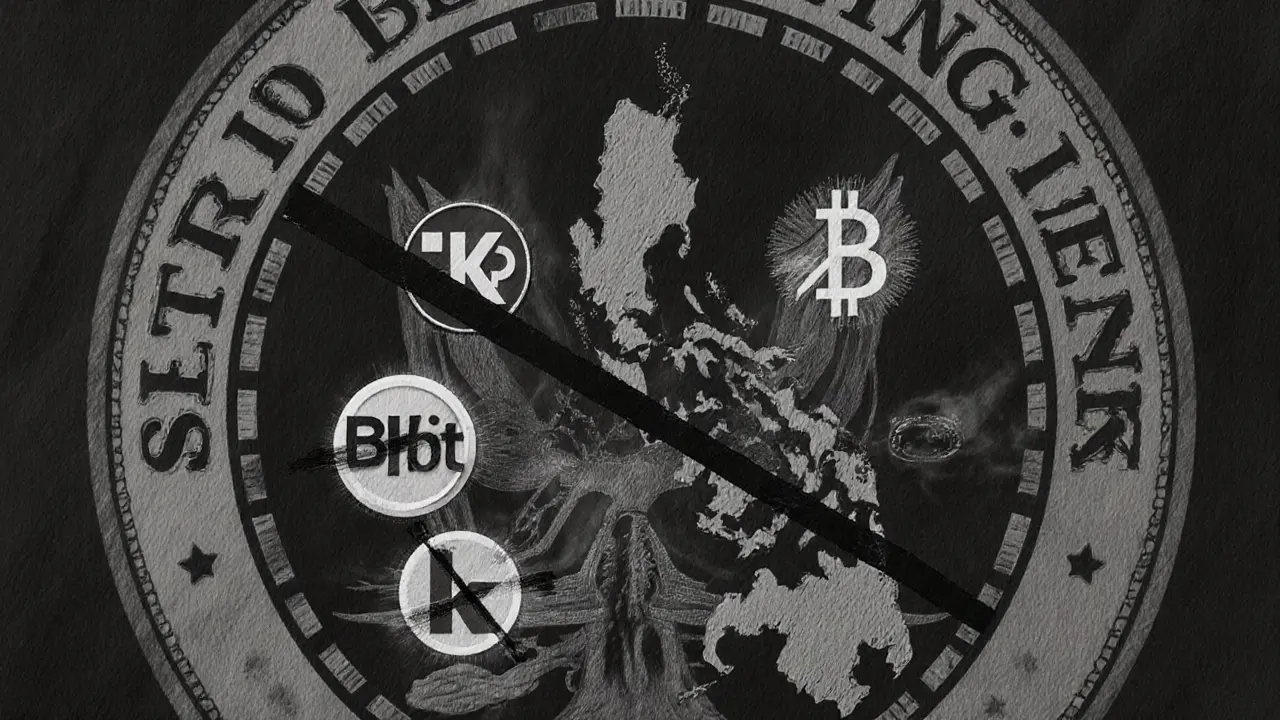The Philippines SEC blacklisted 15 major crypto exchanges in 2025 for operating without licenses. Learn which platforms are banned, why they were blocked, and what options Filipinos have now.
Philippines SEC Crypto Blacklist: Scams, Risks, and What to Avoid
When the Philippines SEC crypto blacklist, a public list of unregistered and fraudulent cryptocurrency projects banned by the Securities and Exchange Commission of the Philippines drops, it’s not a warning—it’s a lifeline. Every token on that list has no team, no audit, no real use case, and often, no trading volume. These aren’t just bad investments—they’re designed to steal your money before you even realize you’ve been scammed. The SEC doesn’t just publish these names to inform the public; it’s trying to stop people from losing life savings to tokens like HarryPotterTrumpSonic100Inu or Dynamic Trust Network, which have zero value and zero legitimacy.
The crypto scams Philippines, fraudulent digital assets promoted through fake airdrops, social media hype, and cloned websites often mimic real projects. You’ll see fake versions of SAND, BNU, or even Zenith Coin, all pushed by influencers with no skin in the game. The SEC Philippines, the government body responsible for regulating securities and protecting retail investors in the Philippines tracks these scams because they’re exploding in number. In 2024 alone, over 30 unregistered token projects were flagged, many tied to unlicensed exchanges like Bitroom or Dexfin—platforms that vanish overnight after collecting deposits. These aren’t glitches. They’re business models built on anonymity and urgency.
If you’re holding a token that’s not on any major exchange, has no whitepaper, and you found it through a Telegram group promising 100x returns, you’re already in danger. The unregulated crypto tokens, digital assets issued without oversight, legal backing, or transparent tokenomics on the blacklist don’t just fail—they disappear. Look at BNU from ByteNext or FOTA from CoinMarketCap scams: both had zero trading volume, no team, and no roadmap. The SEC’s list isn’t just a warning—it’s a map of where not to step. And if you’re wondering why your wallet is empty after claiming a "free" airdrop, the answer is usually right there: it was on the blacklist all along.
What you’ll find in the posts below aren’t just reviews of failed tokens—they’re autopsy reports. Each article breaks down how a scam worked, who got hurt, and how to spot the next one before it’s too late. From fake staking rewards to cloned websites pretending to be Binance, these aren’t theoretical risks. These are real stories of people who lost everything because they didn’t check the list. You don’t need to be an expert to protect yourself. You just need to know where to look—and what to avoid.

